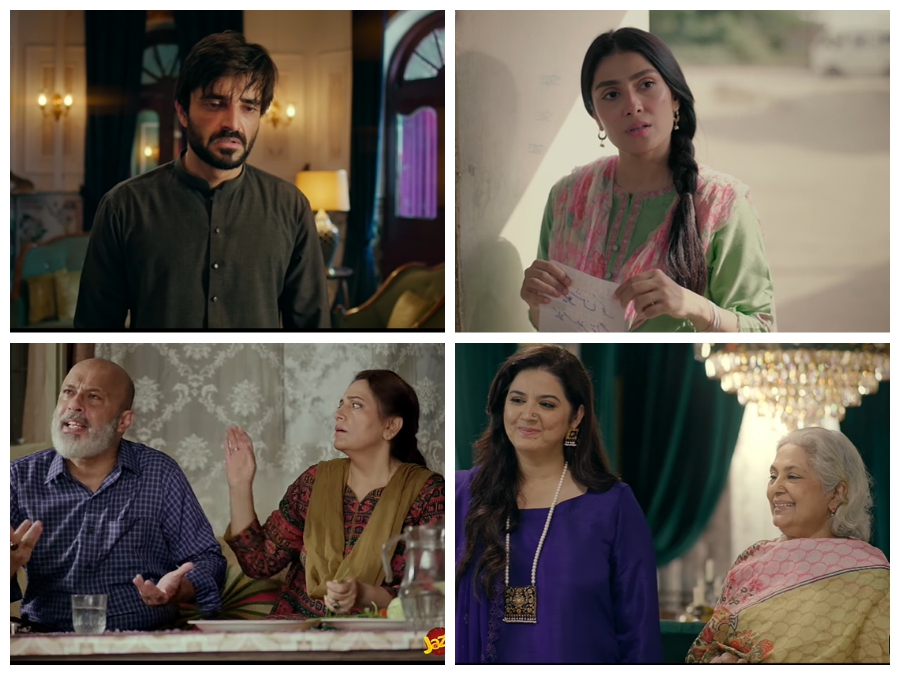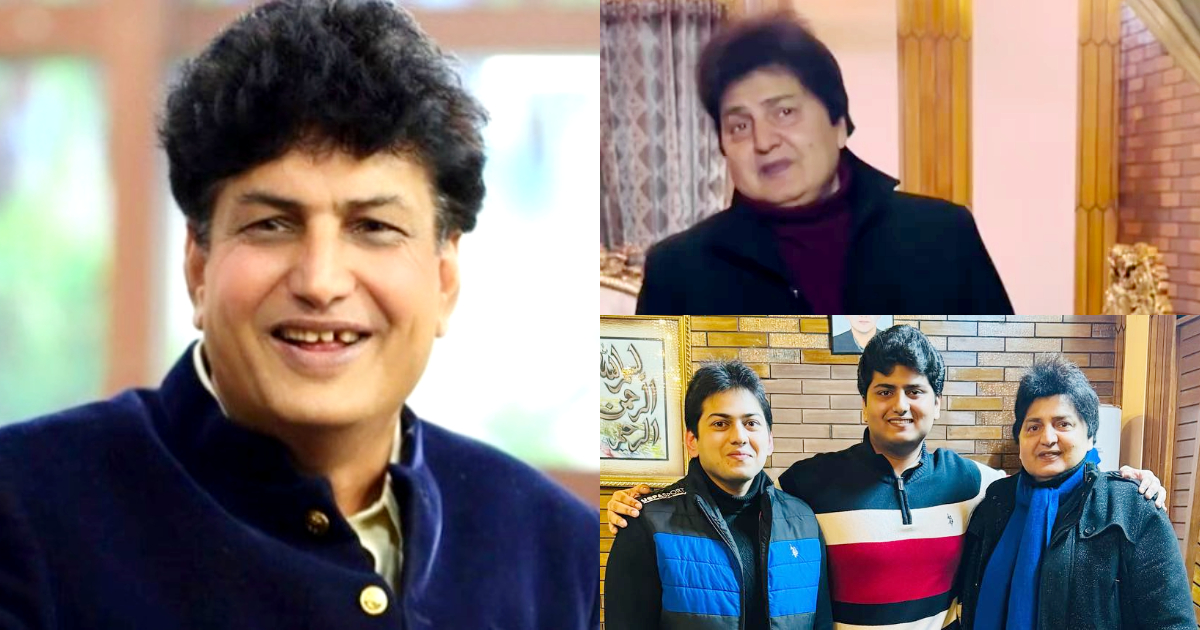The latest installment of Jaan-e-Jahan didn’t quite live up to my expectations, especially in the way Shehram’s narrative played out. I was hoping for a more impactful and captivating storyline. Shehram and Mahnoor’s meeting in the opening scene of this episode wrapped up with a condolence and a polite thank you in return. Following their meeting, Shehram and Mahnoor each embarked on their distinct paths. Shehram did not experience a positive shift after this chance meeting or even months after his father’s demise. The delayed scene covering Mahnoor’s thoughts about Shehram, occurring months later, seemed out of sync with the gravity of this meeting. It would have been more cohesive and realistic if Mahnoor had shared her thoughts about Shehram’s state of mind with her father right after this meeting. This adjustment would have contributed to a more coherent and believable progression of the storyline especially given the significant nature of the encounter and the potential impact on both families. Also, it made little sense that Mahnoor was more aware of Shehram’s state of mind and whatever was happening with the business than her father. Murad Shah had a lot of faith in Mahnoor’s father Rauf which went to show that he is a capable man but so far he seems pretty clueless even though he needs to be on his toes more than ever now.
In the opening scenes of this episode, the narrative delved into Shehram’s emotional state and the deepening shadows of his growing depression. Kishwar took advantage of Shehram’s fragile state, using her cunning ways to win his trust. Her plan included keeping him medicated, ensuring he stayed trapped in this gloomy state of mind. The storyline then leaped forward three months, a pivotal period during which Shehram’s brothers assumed control of the family business—with predictable consequences. To enhance the realism of this transitional phase, the writer could have incorporated brief scenes depicting Shehram’s father’s well-wishers attempting to reach out to him. Notably, the inclusion of the lawyer friend Shehbaz, a figure close to Shehram’s father, would have added depth to the storyline. Such short scenes would have added layers to the narrative. It would have allowed the viewers to witness the ripple effect of Murad Shah’s positive influence, emphasizing the genuine care and efforts made by those in his circle to support Shehram during his challenging times. This was especially important because Murad Shah was not just a figurehead; he was a great friend and a genuinely good human being.
The conversation between Kishwar and her mother gave an insight into Kishwar’s background. This information did not add anything ‘new’ to this particular track but this background was quite like many other such scenarios shown in Pakistani dramas. Kishwar’s plan to get her niece married to Shehram is yet another such scenario. Nothing is appealing or new about this entire track yet the writer is bent on focusing on it extensively.
Mahnoor is not just a strong-willed girl but she is also a dreamer. She dreams of a better future and has big plans despite her circumstances. Dialogue writing is a powerful tool for character development, and in Mahnoor’s case, the dialogue did not do justice to the character. Hopefully, in the upcoming episodes, her dialogues will be more impactful and will align with her character arc. When Mahnoor and Ayesha were having a heart-to-heart discussion about life in general, the well-painted walls in the background did not align with the ‘tooti hui deewarein’ dialogue. Choosing a more modest backdrop in such scenes ensures that the audience remains immersed in the story without being distracted by visual elements that do not align with the established context of the characters’ lives.
The central theme of this episode, particularly concerning Shehram and Mahnoor’s storyline, revolved around the unwavering belief in dreams. While Mahnoor believes in her dreams and continues to dream even though the odds are against her, Shehram has stopped living and dreaming altogether. Mahnoor has a strong personality and she is also determined, will she be able to rescue Shehram? This also makes me wonder if Mahnoor had such easy access to Shehram, where is everyone else?
To enhance viewer engagement and emotional investment, the writer could have provided a more balanced portrayal of Shehram’s character in particular and his respective challenges. Incorporating scenes that showcased Shehram’s internal battles, his interactions with well-wishers, and the potential support available to him instead of focusing entirely on Kishwar’s influence on him could have made this episode more engaging. While the eventual outcome of Shehram overcoming his depression may be reassuring for viewers, the journey itself is equally crucial. A more nuanced exploration of Shehram’s struggles and the support structures around him would have contributed to a richer and more satisfying viewing experience.
This latest episode also ended with Mahnoor and Shehram meeting for the third time. Each one of their meetings has been interesting and it remains to be seen if the writer will be able to maintain a balance between the positive aspects of the story and its negative elements. Despite Savera Nadeem’s exceptional performance in this episode, Kishwar’s scenes failed to impress. This track seems to lack the compelling elements necessary to make Kishwar’s character and her associated plot points engaging. Zeenat’s inclusion in this storyline seems to follow a rather conventional pattern, adding another typical element to the track. The portrayal of Shehram’s character in this particular episode has left me somewhat disappointed as his present state of mind lacks the engaging quality especially because there isn’t much to it. This had to be the least engaging episode of Jaan-e-Jahan so far!
Did you watch tonight’s episode? Do share your thoughts about it.




